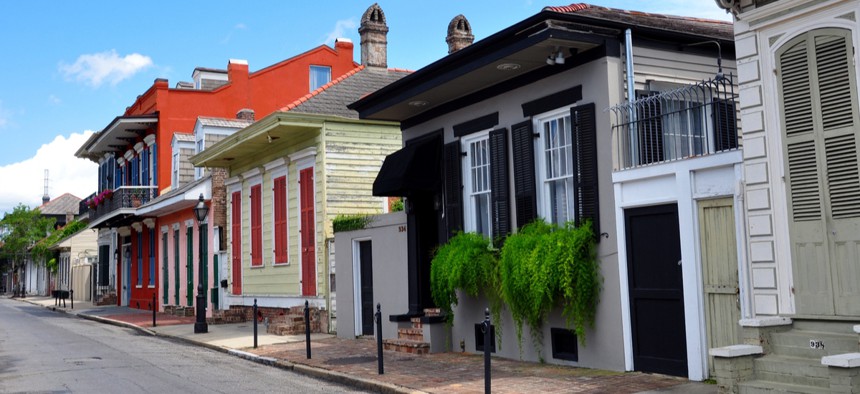Resilient Cities Look to Community Development Financial Institutions for Investment

New Orleans' "resilient cities" strategy is focused on climate change. Shutterstock

Connecting state and local government leaders
A number of cities are rolling out resilience strategies full of projects that need funding, and impact and mission-related investors make a good fit.
The 100 Resilient Cities network will use a $200,000 grant to connect cities with community development financial institutions, or CDFIs, and other investors, as its members continue to release their resilience strategies.
100RC plans to pilot a Resilient Community Development Finance Program for the 25 U.S. cities in its ranks because CDFIs mostly work in this country. The grant is coming from the Bank of America Charitable Foundation.
A number of the cities have already released their strategies—New Orleans is focused on climate change and Boston on racial equity—but the projects they propose need funding, which is where CDFIs, impact investors and mission-related investors come in.
“The very real threats of urbanization and climate change and globalization, and the shocks and stresses that cities are starting to see and feel, started to resonate with this group of investors,” said Stewart Sarkozy-Banoczy, senior advisor for resilience finance at 100RC. “In some ways, they’ve been doing a lot of what we would call resilience work and resilience finance; their DNA has a lot of overlap with our definition and our work.”
Already CDFIs have helped fund energy efficiency projects that include seismic mitigation and green banks. Last year’s devastating hurricane season, as well as hurricanes Florence and Michael in 2018, have hastened their move into the resilience space, Sarkozy-Banoczy said.
The campaign will have two parts, the first being education about what urban resilience and mission-related investing mean. The second is project-to-project funding, whether that means installing solar panels, developing affordable housing or fostering greater social cohesion.
CDFIs and investors will help scale these projects and others, and 100RC aims to get them involved earlier in the process, Sarkozy-Banoczy said. The institutions invest federal grants, which they are required to match with private funds, for the benefit of low-income and underserved residents in economically distressed communities.
100RC will gauge success based on the number of deals made and funding streams created, community impacts of the projects funded and increased awareness. Sarkozy-Banoczy wants to see the movement around resilience go viral.
“What we want to do now is make that explicit, so the place-based lenders are connected to the projects as they’re rolled out,” he said.
Dave Nyczepir is a News Editor at Government Executive’s Route Fifty and is based in Washington, D.C.

NEXT STORY: HHS taps AI, automation for grants management





